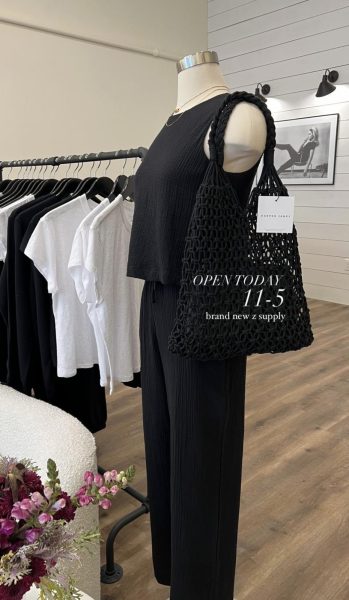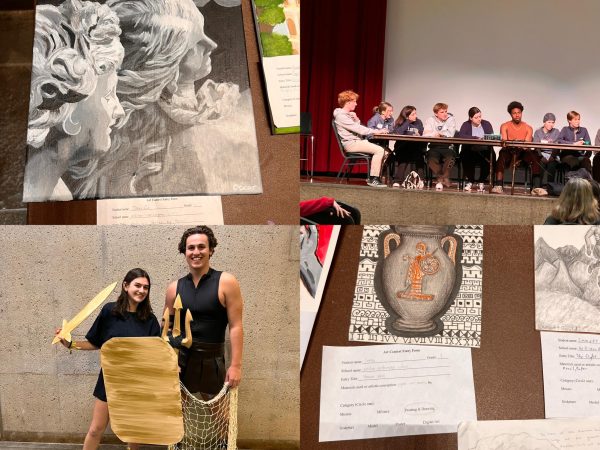William Kamkwamba Speaks at Williston
“We used to eat one meal per day so that the small amount of food we had could sustain us for the next harvesting season,” said William Kamkwamba. “There was only one way for me to get out of that cycle, and that was education.”
Kamkwamba is a Malawian inventor and humanitarian who came into international prominence after developing a windmill out of scrap parts that generated electricity for his village. In the latest installment of the Sarah Wattles Perry ’77 Lecture Series, Kamkwamba visited Williston to talk about his journey creating sustainable utilities for Malawian communities. Kamkwamba, a senior studying engineering and sustainable technologies at Dartmouth University, co-wrote The Boy Who Harnessed the Wind and gave a TED Talk in September of 2009 about his experiences learning the process of energy generation and how to apply it successfully in his community.
Kamkwamba grew up in a Malawian farming village where poverty was rampant. As Kamkwamba was about to start high school, his parents gave him disappointing news: his education was too expensive for them to afford – eighty dollars per year – so he would have to drop out of school in his freshman year. For perspective, full boarding tuition at Williston is six-hundred-thirty-six times higher than what Kamkwamba’s family could no longer afford. But he was determined.
“I thought that by reading books,” he said in his speech, “I could stay at the same level as my friends who were still in school.” Kamkwamba would visit the nearby library as often as possible. As his former classmates received lessons from a teacher, he would read voraciously about math, science, and language. He was an autodidact by necessity. Kamkwamba had a particular interest in physics, and one day his eye was caught by an eighth grade American textbook called Using Energy.
Though he struggled through the language barrier, he said, he found the subject matter fascinating. He decided to build a windmill in order to pump water. “If I could use a windmill to pump water,” he said, “I could solve my problems with my education.” However, he said, “they didn’t have instructions for how to build the windmill.” He had to figure it out for himself.
Kamkwamba set out to find spare parts in abandoned garages and dumps, digging through trash for bike tires, PVC pipes, and bamboo. This eccentric behavior got some attention, he said with a laugh. “Some were saying, ‘maybe you’re smoking weed.’ My mom said you are no longer going to be able to find a wife. No one wants to marry a crazy man.” But the scavenging had results, and he soon had a working windmill strong enough to charge a cell phone or light a bulb.
His ingenuity and resourcefulness attracted an international audience after Malawian newspapers picked up his story. He soon found himself with the frightening prospect of travelling abroad to give a TEDGlobal Talk in Tanzania. The trip was made more intimidating, he said, because he “had never been away from my village before. I had never seen a plane before.”
Kamkwamba wound up at a South African boarding school, and then later at Dartmouth College – a surprise, he said, because of the biting cold of Hanover, New Hampshire. Since his windmill project, he has worked on a well with a solar-powered pump, a biofuel generator, and a water purifier, all with the help of Dartmouth’s machine shop. So far he has six coworkers on his projects and regularly brings Dartmouth students to Malawi to help him out in modernizing his village.
His long-term goal, though, is to change the way his village – and his country – farms. After all, 80% of Malawians are farmers, compared to just 2% of Americans, according to the USDA, so even a minor change could have huge implications. Greater efficiency in farming was, after all, one of the driving forces of the industrial revolution. Similarly, Malawi would see a huge increase in the number of workers available for jobs in a skill-based economy if farming could move from sustenance to commercial in villages like Kamkwamba’s.
Kamkwamba’s speech was well received by the student body. One student, junior Katie Lucchesi, said that the “biggest thing” that would stick with her “is how resourceful he was,” a stark reminder that “we’re all so fortunate” to live without the terrific adversity that Kamkwamba fought since his family told him school was no longer an option. While Americans can afford to use an item once and consign it to the dump-heap, the people of Kamkwamba’s village have to make do with what they have, reusing items until they fail and then repurposing them after they break.
Kamkwamba’s speech ended on a hopeful note when he talked about how he overcame major difficulties, like when the bike chain he used in the windmill turned out to be wholly insufficient for the job, and about the help he has received from those around him. “Most people are really interested to help out,” he said. “Just go for it.”












